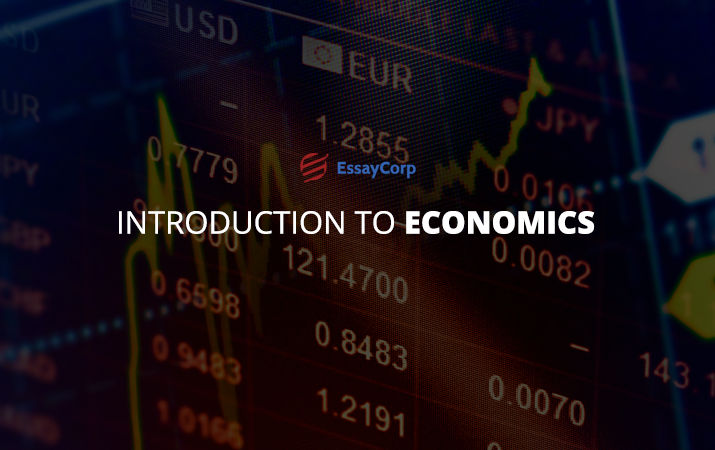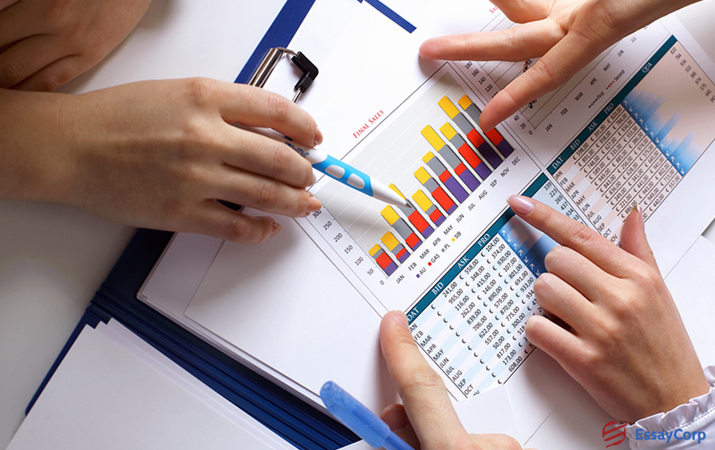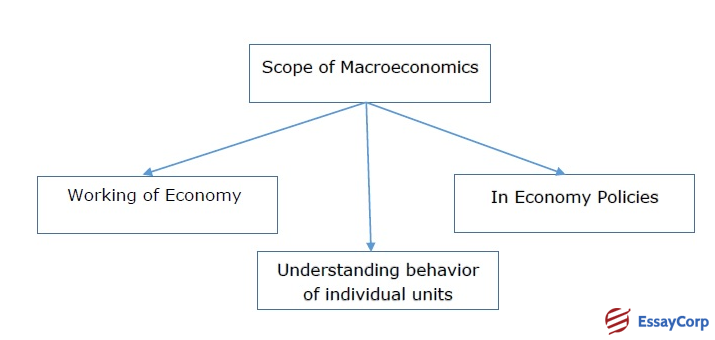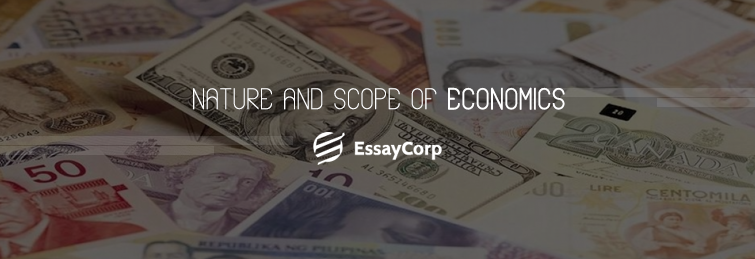Those days are gone when people weren't aware of the three basic business rules. Nowadays, the tables have turned around. Understanding the economic concept is mandatory as everybody wants to flourish their business to an apex level.
Introduction to Economics
The meaning of economics has been interpreted differently by different individuals. According to Adam smith's definition of economics, the concept of Economics is wealth oriented. In his definition, a man always wants to increase his economic profit. While on the other hand, Alfred Marshall says that economics is not only about money but also connected with business. According to him, spending money is also as important as earning. Though, there are infinite numbers of explanations by various philosophers.
In the simplest terms, Economics is related to the aspects that determine the consumption, production, exchange and distribution of various goods and services. Well, the importance of economics as a subject is extensive and varied. Economics' nature and scope mainly depend on economics agents' activities and how their economic effort. To understand economics in detail, it's time to analyze its nature deeply.

Nature of Economics
When it comes to the nature of economics, several things strike the doors of our minds, i.e. whether economics is considered a science or an art. This matter has always been in the great argument regarding various economists. But, now it's time to lift the curtains to find out about the nature of economics.
- Economics as a science: Before deepening the context of this topic, firstly, it is important to have an impression of science. It is mainly defined as the systematic study that signifies the cause-and-effect relationship. In science, it is the collection of facts and figures that should be analyzed correctly. Economics, yet, is treated as a social science due to the following features of science.
-
- It depends on the systematic collection and analysis of facts and figures. Likewise, all the theories connected with micro and macroeconomics are examined carefully in economics.
- It is based on the formulation of theories and laws,
- It believes in tracing the cause-and-effect relationship.
- It can also make upcoming forecasts.
- It has a scale of measurement, as in economics, 'money' is considered as the measuring rod.
From the points mentioned above, it can be clearly stated that the nature of economics is correlated to science. Alike in science, various economic theories are based on logical reasoning. Let's take an example to understand this. In science, there is Newton's law of gravitation, and in economics, the law of demand signifies that there will be a rise in order if it decreases in price.
- Economics as an art: Now, the question arises why the nature of economics is an art. According to Marshall, art is the application of information and knowledge. As in economics, art acts as a solution to all economic complications. Furthermore, several terms in economics, like distribution, consumption, and production, offer guidelines to us that can be used to sort out the economic problems in society.
Thus, from the above discussion, it can be clearly said that economics is both a science and an art.
Scope of Economics
The basic concept of economics has a vast scope. To understand this crucial aspect, going through this concern carefully is necessary. So, without wasting time, let's go and comprehend it.
The scope of economics can be classified broadly into two categories:
- Microeconomics: Microeconomics is the study of examining every individual economic activity, industry, and interaction. It mainly observes how a person earns and spends his income. Besides, the nature of microeconomics has certain key areas that must be considered.
-
- Elasticity: Elasticity is used to determine the ratio of change in the proportion of one variable to the difference in the balance of another variable. Commonly used elasticity in the market: price elasticity of demand, the income elasticity of order, the price elasticity of supply etc.
- Theory of production: In this study of production, the input is converted into output efficiently. The presentation can include storing, shipping, packaging, and manufacturing.
- Cost of production: This theory states that the price of resources determines the object's price. The cost can be comprised of land, labour, capital and technology.
- Monopoly: A monopoly is a state where a single firm is the only supplier of a specific commodity.
- Economics of Information: Information economics is a theory that shows how information can affect economic decisions.
- Oligopoly: It is termed the situation where small numbers of sellers dominate an industry or a market.

- Macroeconomics: It is the branch of economics that deals with economic functioning, performance, decision-making, and structure. However, some basic concepts of the nature and the scope of macroeconomics make it more interesting than any other.
-
- Output and income: Output can be defined as the total income generated from the sold commodity. It is usually measured by the Gross Domestic Product (GDP). Moreover, there are many reasons for the rise in the output: technological advancement, human capital, and better education.
- Unemployment is typically measured by the overall employment rate, which means the ratio of workers without employment. But the retired people pursuing their education are excluded from this unemployment rate.
- Inflation and deflation: Generally, a price increase refers to inflation; conversely, a price decrease relates to deflation in the economy. These fluctuations in the cost can be easily measured by using price indexes.

If you understand the subject better, you can do your assignments perfectly, but students who face concerns in doing their assignments can reach EssayCorp for all assignment help. We have an economics expert who can write a perfect economic project to help you achieve better grades.



.png) Contact Us, Today!
Contact Us, Today! 